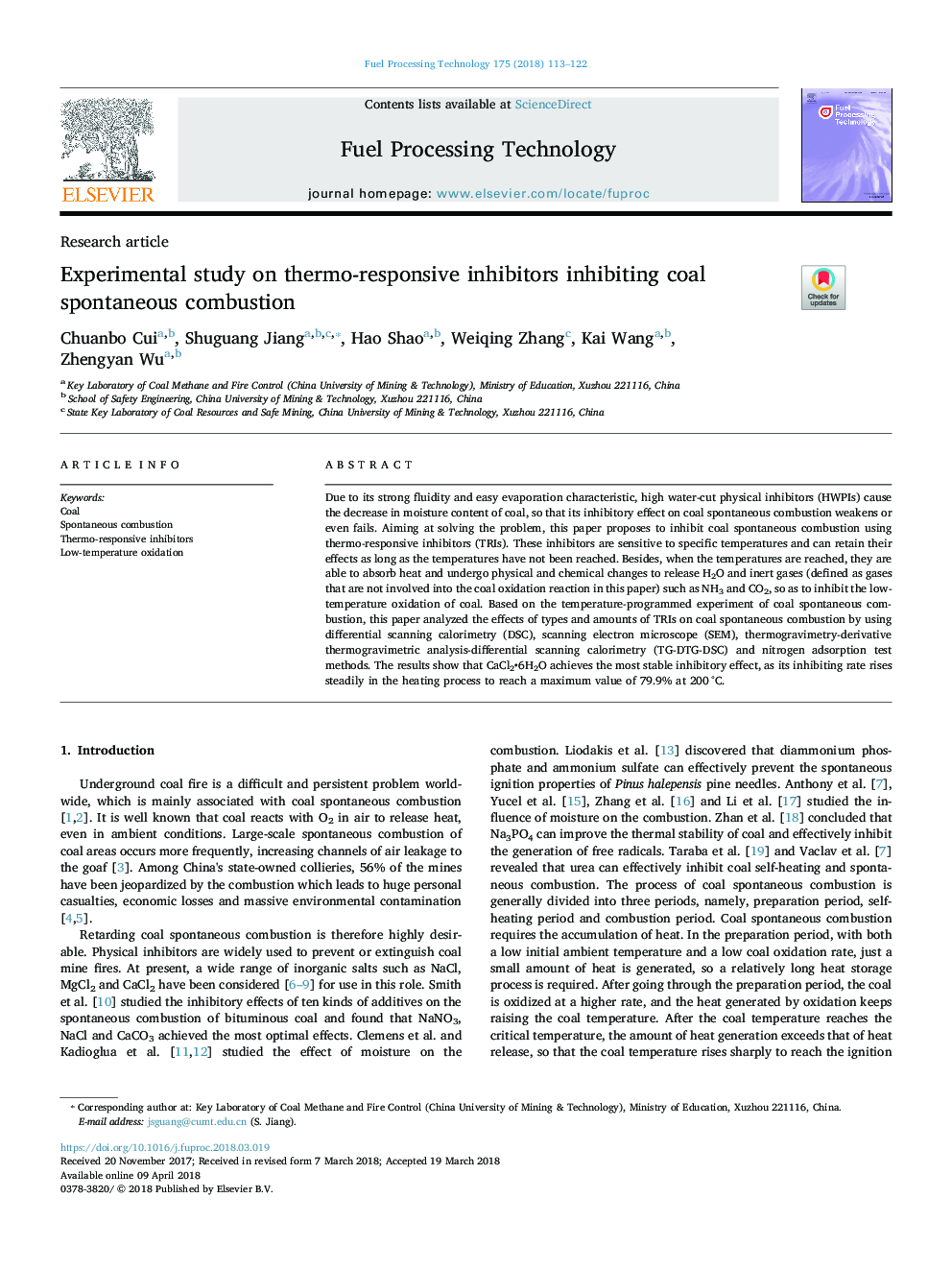| Article ID | Journal | Published Year | Pages | File Type |
|---|---|---|---|---|
| 6656397 | Fuel Processing Technology | 2018 | 10 Pages |
Abstract
Due to its strong fluidity and easy evaporation characteristic, high water-cut physical inhibitors (HWPIs) cause the decrease in moisture content of coal, so that its inhibitory effect on coal spontaneous combustion weakens or even fails. Aiming at solving the problem, this paper proposes to inhibit coal spontaneous combustion using thermo-responsive inhibitors (TRIs). These inhibitors are sensitive to specific temperatures and can retain their effects as long as the temperatures have not been reached. Besides, when the temperatures are reached, they are able to absorb heat and undergo physical and chemical changes to release H2O and inert gases (defined as gases that are not involved into the coal oxidation reaction in this paper) such as NH3 and CO2, so as to inhibit the low-temperature oxidation of coal. Based on the temperature-programmed experiment of coal spontaneous combustion, this paper analyzed the effects of types and amounts of TRIs on coal spontaneous combustion by using differential scanning calorimetry (DSC), scanning electron microscope (SEM), thermogravimetry-derivative thermogravimetric analysis-differential scanning calorimetry (TG-DTG-DSC) and nitrogen adsorption test methods. The results show that CaCl2
- 6H2O achieves the most stable inhibitory effect, as its inhibiting rate rises steadily in the heating process to reach a maximum value of 79.9% at 200â¯Â°C.
- 6H2O achieves the most stable inhibitory effect, as its inhibiting rate rises steadily in the heating process to reach a maximum value of 79.9% at 200â¯Â°C.
Related Topics
Physical Sciences and Engineering
Chemical Engineering
Chemical Engineering (General)
Authors
Chuanbo Cui, Shuguang Jiang, Hao Shao, Weiqing Zhang, Kai Wang, Zhengyan Wu,
